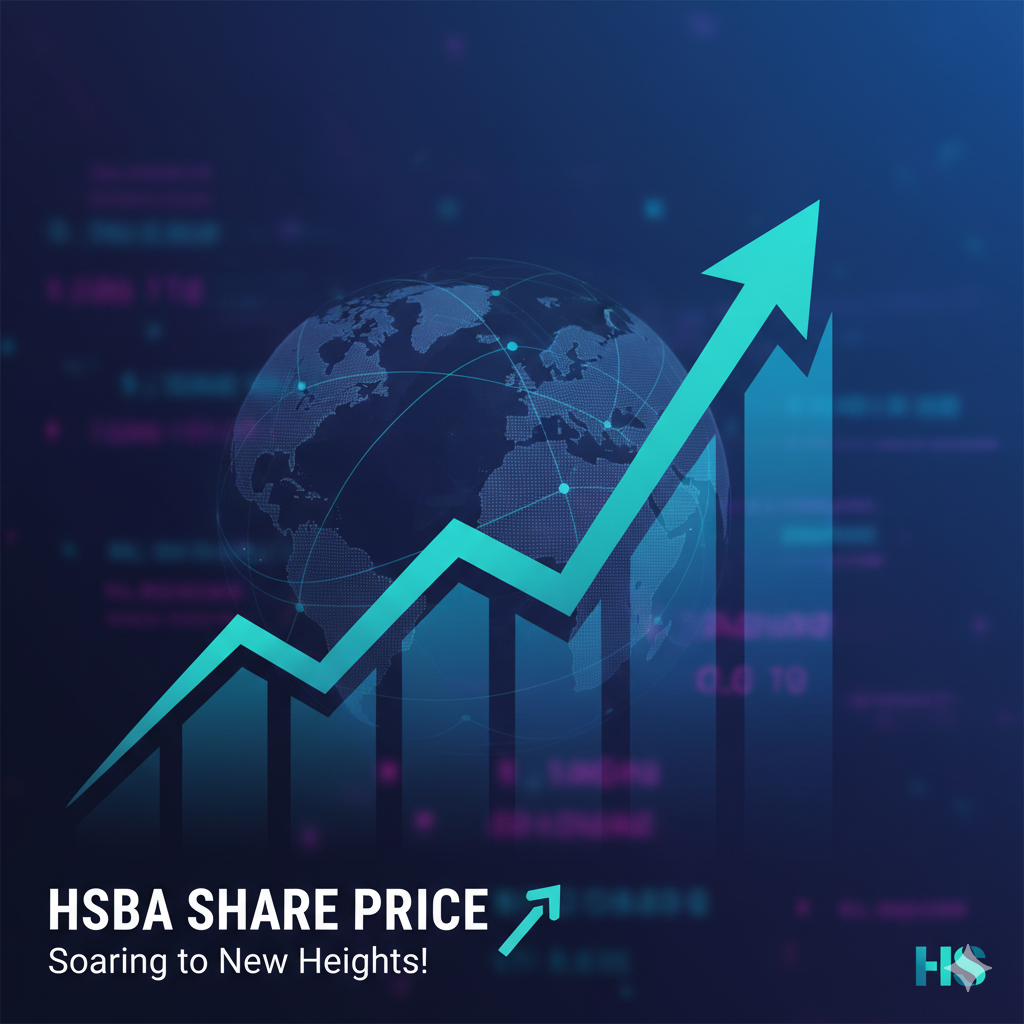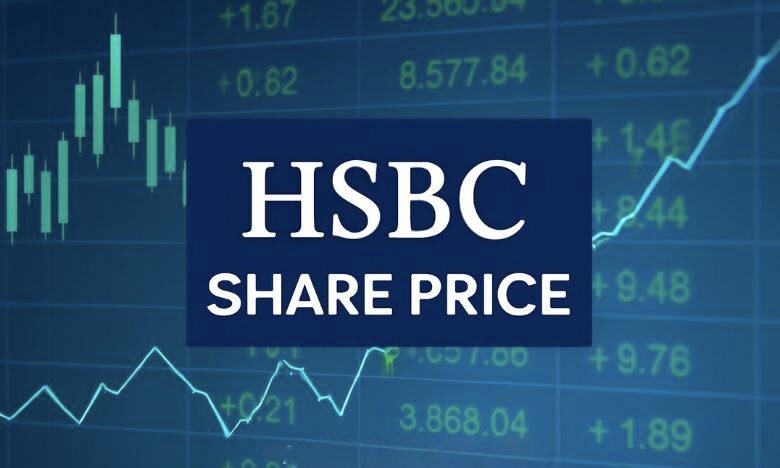Introduction: The Intricacies of HSBA Share Price in 2025
Imagine you’re sitting in a small café, your business humming along nicely. Your eyes glance at the stock market ticker running across the screen, showing the latest prices for companies big and small. Among them, HSBA’s share price catches your eye. Why? Because, in 2025, its movements are more than just a number on a screen – they’re signals, a reflection of broader economic shifts that could directly affect your business.
As a small business owner or entrepreneur, the stock market might feel like a far-off world, detached from your day-to-day operations. But the reality is, understanding movements like the HSBA share price is crucial. The rise and fall of such stock prices can impact everything from your supply chain costs to your access to capital, or even customer confidence. So, how does this play into your business strategy?
In this post, we’ll explore everything you need to know about the HSBA share price in 2025, how to interpret its fluctuations, and why it matters to your small business. We’ll also dive into the tools and strategies that can help you navigate these changes effectively.
What Is HSBA Share Price and Why Does It Matter?
HSBA, a prominent name in the global banking sector, has seen its share price fluctuate for decades. But in 2025, we are seeing shifts that carry deeper implications for investors and small business owners alike.
In simple terms, HSBA share price refers to the market value of one share in HSBC Holdings, one of the largest banks in the world. When people buy and sell HSBA shares, they set a price based on what they think the future value of the company will be. This price is influenced by various factors, including the bank’s financial health, global economic conditions, and investor sentiment.
Why does it matter?
Small business owners often overlook the stock market, assuming it’s something only big corporations need to worry about. But here’s the reality: when companies like HSBC experience shifts in their share prices, it often signals trends that impact the global economy, banking systems, and your access to financial resources. In 2025, the dynamic nature of HSBA’s share price could tell you everything about the direction of the broader financial markets, interest rates, and even consumer behavior.
How to Track and Understand HSBA Share Price Movements in 2025
Tracking HSBA’s share price isn’t as difficult as it sounds, and understanding its movement can provide you with valuable insights into your business’s financial environment.
Step 1: Monitor the Key Drivers
The price of HSBA shares doesn’t move in a vacuum. Several factors influence its price, including:
- Interest Rates: Banks like HSBC are directly impacted by changes in global interest rates. In 2025, with fluctuating inflation rates and the global response to them, interest rates could be volatile.
- Global Economic Stability: HSBC operates in numerous markets. A dip in the Chinese economy or turmoil in the European Union could influence HSBA’s share price.
- Banking Sector Regulations: Regulatory changes, such as adjustments to capital requirements or loan restrictions, can influence investor confidence in HSBC and other large banks.
Step 2: Use Financial Tools for Real-Time Tracking
There are multiple platforms like Yahoo Finance, Bloomberg, and TradingView that provide real-time updates on HSBA share price. These tools allow you to set up price alerts, track historical data, and analyze trends that could help you make more informed business decisions.
Why HSBA Share Price Matters to Small Business Owners in 2025
For a small business owner, understanding the HSBA share price in 2025 isn’t just a matter of academic interest. It can directly impact your bottom line. Here’s how:
Access to Credit and Loans
HSBC is a global financial institution that lends to businesses of all sizes. If HSBA’s share price is strong, it signals investor confidence in HSBC, which could result in lower borrowing costs for small businesses. Conversely, a dip in share price might signal financial uncertainty, making it harder for you to secure favorable loans.
Currency Exchange and International Trade
If your business involves international trade, shifts in the HSBA share price might indicate upcoming fluctuations in currency exchange rates. The health of major banks is often tied to the broader strength of currencies like the U.S. dollar and the euro, both of which HSBC has significant exposure to.
Investor Sentiment and Consumer Confidence
HSBC’s share price is also an indicator of broader economic trends. If investors are nervous about the future, that might translate into a dip in consumer confidence, which could impact spending behavior. For small businesses, particularly those in retail or services, understanding the market mood can provide insights into potential future sales.
Common Mistakes to Avoid When Tracking HSBA Share Price
While understanding share price movements is critical, there are some common pitfalls to avoid:
Overreacting to Short-Term Fluctuations
HSBA share prices can fluctuate due to short-term market events. A one-day drop doesn’t necessarily mean you need to change your financial strategy. Keep your focus on long-term trends rather than day-to-day price changes.
Ignoring Broader Economic Context
HSBA’s share price is just one piece of the puzzle. A deep dive into the broader economic context will help you understand why the share price is moving. Whether it’s a change in global interest rates, geopolitical tensions, or new regulations, understanding the underlying causes can help you make better business decisions.
Overestimating or Underestimating Risk
It’s easy to assume that a rising share price is a guaranteed signal of stability, but the opposite can also be true. High prices may signal an overheated market, while low prices could indicate an undervalued stock with potential for growth.
The Future of HSBA Share Price in 2025 and Beyond
As we look to 2025 and beyond, several factors will shape the future of HSBA share price. The global economy remains in a state of flux, with emerging markets, inflation concerns, and technological advancements impacting the banking sector. For small business owners, this means more volatility but also greater opportunity for those who stay informed and agile.
- Technological Disruption: HSBC, like many financial institutions, is investing heavily in digital banking. The rise of AI, blockchain, and fintech could influence the bank’s profitability and, by extension, its share price.
- Sustainability and ESG Factors: As businesses and governments focus more on environmental, social, and governance (ESG) factors, HSBA’s position on sustainability could affect its stock price. Small business owners with eco-friendly or socially responsible practices can benefit from this shift.
FAQs
Q1: How often should I check the HSBA share price as a small business owner?
It’s important to track HSBA’s share price on a weekly basis, especially if your business is sensitive to market trends or reliant on banking services.
Q2: Can I predict HSBA share price movements?
While no one can predict stock prices with certainty, understanding the key drivers of change can help you make more informed forecasts.
Q3: How does a drop in HSBA’s share price affect my small business?
A significant drop may indicate wider economic instability, potentially raising borrowing costs or reducing consumer confidence, which could impact your sales.
Conclusion: Stay Informed and Leverage Market Movements
The HSBA share price is more than just a number; it’s a key indicator of financial health, economic trends, and business opportunities in 2025. As a small business owner, understanding these fluctuations can give you a competitive edge. By staying informed, avoiding common mistakes, and adopting proactive strategies, you can better navigate the complexities of today’s financial landscape.
Take the time to monitor the markets, track key indicators, and be ready to adapt to changing conditions. In doing so, you’ll be well-positioned to leverage these shifts for your business’s growth.
Call to Action: Stay ahead of market trends by subscribing to our newsletter for the latest insights on the HSBA share price and how it can impact your business.


